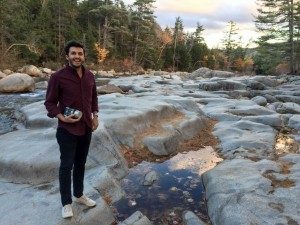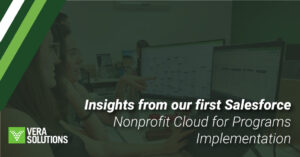A Consultant in Vera’s Boston office, Nick Strutt has experience in agricultural development, international trade law, and maternal and childhood nutrition. Before joining Vera, he spent more than three years overseeing a large randomized control trial in Ghana evaluating a complementary food supplement for infants. Nick holds a BA in Plant Genetics from Cornell University and both an MS in Nutrition Science and Policy and an MA in Law and Diplomacy from the Friedman and Fletcher Schools at Tufts University.

With an affinity for biology and a growing love for orchids, I attended Cornell University to study plant genetics with the goal of becoming a world-class orchid breeder. My plan collapsed in on itself when, very shortly after arriving in upstate New York, I was faced with the most basic, yet most amazing, realization – plants feed the world. Growing up in a non-agricultural community, where I worked all through high school selling plants at a garden center, this was truly a new concept and became a real turning point for me.
This realization opened my eyes to one of the most massive problems facing the world: agricultural productivity and food insecurity. Within weeks of starting at Cornell my career goal transformed; I wanted to continue studying plant genetics, but rather than breed beautiful orchids I would breed new varieties of staple agricultural crops and make a meaningful impact on food security somewhere in the world. Noble? Sure. Narrowly idealistic? Absolutely.
At that age, I thought of global development almost as a number of discrete and solvable arithmetic equations – i.e. discovery of a new gene = end of global hunger. I was attracted to pursuing these goals through science because within the hard sciences it seemed like answers actually existed, they just needed to be discovered. I think I wished very deeply that this was how problems like global food insecurity could be solved. In hindsight, it is very clear to me that my adolescent mind was doing the best it could, grappling for the first time with a global problem that was truly beyond me as an individual.
I quickly began to realize that my lofty dreams of sparking the next green revolution by the age of 21 was improbable. More importantly, I realized that working towards such a broad goal would require more from me beyond an education in genetics crop improvement. I needed to broaden my perspective and understanding of why certain global challenges were so intractable. I shifted my focus and decided to further my education in what I viewed as the in-between stuff – the fields that don’t seek discrete answers to problems, but instead provide frameworks and perspectives for approaching them. I attended the Fletcher and Friedman Schools at Tufts University, where I studied development economics, political economy, and nutrition policy.
While at Tufts I couldn’t avoid the personal gravitational forces drawing me towards the discrete: statistics, econometrics, and impact evaluation. But, looking back at my time at Tufts, it’s clear that it was not through these courses where I grew the most. The analytical skills have been invaluable, but it was studying topics like political economy and policy analysis that expanded my perspective. My courses required me to analyze, draw conclusions, and make arguments based on theory and supposition with broad context. Thinking in this way truly changed my worldview and encouraged me to think more systemically about the challenges facing the world.
That said, graduate school didn’t necessarily help me figure out my place in the world of global development. I was overwhelmed by its depth and complexity, which is part of the reason I was attracted to Vera with its critical and discrete focus on data. I was eager to contribute to the mission of helping social sector organizations answer questions better with data. Again, I thought working towards a discrete goal was the right approach.
After almost a year of working at Vera, however, it has become clear that our impact comes from much more than simply putting together discrete building blocks of answerable questions to create data management systems. Our partners vary widely in their size, technical capacity, and complexity of operations. The most interesting challenge in working with such a broad range of partners is in figuring out all of the in-between bits – understanding the qualitative parameters like organization culture, adaptability, likelihood of internal buy-in, etc. These areas require a more nuanced approach and understanding.
In joining Vera, I’ve been able to merge my background in data and technical work with my appreciation for a more qualitative, systems-thinking approach to development. While we do solve discrete technical problems for our partners, we also design data management systems to meet our partners’ holistic needs – combining the technical and functional for maximum impact.



